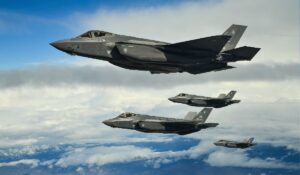The global economic crisis is deteriorating at a rate as dizzying as the pandemic is. The reduction in economic growth and the sudden halt in China’s production system are now behind us. Now the price of oil has collapsed, stock markets have plummeted and panic in the financial world has set in.
Many suggest that the economy was moving along fine before the coronavirus abruptly shifted it. They also estimate that the pandemic may lead to the resumption of a collapse similar to that of 2008. But in that case, it was immediately clear that the bankers, the greed of the speculators and the effects of neoliberal deregulation were responsible. Now all that is being discussed is the origin and consequences of a virus, as if the economy were just another patient affected by this earthquake in the world of health.
In reality, the coronavirus tore apart the strong existing tensions in the markets and the enormous imbalances that contemporary capitalism accumulates. It accentuated a slowdown in the economy that had already debilitated Europe and was holding back the United States.
The divorce between the reality of a growing economic slowdown and the continued euphoria in the stock markets anticipated the bursting of a bubble, which periodically inflates and punctures Wall Street. The coronavirus has brought on this collapse, for which there is no treatment. It only repeats the well-known pathology of financialization.
Unlike 2008, the new bubble is not found in household debt or in shaky banks. It is concentrated in liabilities of large companies (corporate debt) and in the balance sheets of many states (sovereign debt). In addition, there is serious concern about the health of investment funds, which have increased their already substantial role in the purchase and sale of bonds.
The capitalist economy generates these tremors, and no vaccine can temper the volatility that the greed for profit unleashes. But the misery, unemployment, and suffering these earthquakes cause have now been overshadowed by the terror that the pandemic is creating.
A drop in oil prices also preceded the health tsunami. Two major producers (Russia and Saudi Arabia) and a major player (the United States) were locked in a conflict over who sets the world price of hydrocarbons. This rivalry broke the body that had propped up the world price of crude oil (OPEC plus 10).
The overproduction that brought about this drop in oil prices was another underlying imbalance in the world economy. The surplus of goods—which extends to inputs and raw materials—is the cause of the great battle between the United States and China.
The two main determinants of the current crisis—financialization and overproduction—hit all firms, which have either flooded the markets with bonds or took on increasing amounts debt to manage their increasingly unsellable goods. The coronavirus is totally unaware of these imbalances, but its appearance acted like a fuse lit under an arsenal saturated with goods and money.
Several specialists have also highlighted how the capitalist transformations of the last four decades have influenced the magnitude of the pandemic. They note that previous outbreaks—occurring with long periods between—are now exploding more frequently. This happened with SARS (2002-03), H1N1 swine flu (2009), MERS (2012), Ebola (2014-16), zika (2015) and dengue (2016).
The connection of these outbreaks with urbanization is very clear. Population overcrowding and its forced proximity multiply the spread of germs. The effect of globalization is also clear, owing to an exponential increase in the number of travelers and the consequent spread of contagion to all corners of the globe. The way in which the coronavirus has caused the collapse of aviation, tourism and cruise industries in just a few weeks is a striking illustration of that point.
Capitalism has globalized many profitable activities in a dizzying way, without breaking down borders in the world health care system. On the contrary, privatization and austerity have, in every country, undermined protection against diseases that are globalizing with unusual speed.
Some scholars also recall that after the world got past the SARS crisis, research to understand and prevent new viruses dried up. The interests of the pharmaceutical conglomerates prevailed, and they prioritized sale of medicines to well-to-do patients. A pathetic example of this putting profit before health care was seen in the United States at the beginning of the pandemic when patients were charged for coronavirus tests. The lack of free testing made it harder to determine the number of cases at a key time for diagnosis.
Other experts highlight how the habitat of many wild species has been destroyed in service of agribusiness industrialization. Such environmental devastation has created the conditions for accelerated mutation or creation of new viruses.
China has been an epicenter of these changes. In no other country has urbanization converged so rapidly, with integration into global value chains and the adoption of new food standards.
In the heart of the establishment, the coronavirus has already generated the same fear that plagued all governments during the financial collapse of 2008. That is why governments are moving to enact similar policies, where big companies are prioritized, as those used in 2008. But there are many doubts about whether that playbook can work now.
With lower interest rates, they are trying to counteract the economic collapse. But the cost of money is already so low that it’s not clear if even lower interest rates will stimulate economic activity. The same doubts have led governments to inject massive amounts of money and to initiate a wave of tax cuts.
The dollar and U.S. Treasury bonds have once again become the main safe haven for capital seeking protection from the crisis. But the U.S., the leading power, is currently commanded by a brutal president. He will use those resources for the imperial project of restoring American hegemony.
For that reason, unlike in 2008, a total lack of international coordination prevails in the face of the collapse that threatens the world economy. The cooperation between G20 members in 2008 has given way to unilateral actions by world powers today. Now major powers are trying to save themselves, even at other countries’ expense.
Not only does the United States announce measures without consulting Europe (for example, Trump’s announcement of a suspension of flights from Europe to the U.S.), but the countries of the old continent themselves are also act on their own, forgetting that they belong to a common “union”. All the consequences of a globalization of the economy—within the old framework of the national states— are coming to the surface. No one knows how capitalism will deal with this scenario.
The terrible consequences of the crisis for the Latin American economy are clear to see. The collapse of commodity prices combines with massive capital outflows and large currency devaluations in Brazil, Chile or Mexico. The collapse in Argentina is beginning to become a mirror reflecting suffering for the whole region.
It is clear that the coronavirus will hit the world’s poorest the hardest, producing unimaginable tragedy if it reaches countries with non-existent, deteriorated or demolished health systems. Due to the pandemic’s high transmission rate and its strong impact on the elderly, the hospital structure in advanced countries is already floundering.
When the coronavirus emerged, questions about how governments reacted were raised. There were strong indications of irresponsibility, data concealment or delays in prevention, to minimize the pandemic’s impact on business. But the drastic reaction that followed is beginning to approach the management of a war economy. The fact that the virus infected several members of the world elite of government ministers, managers and entertainment figures underpinned this shift.
The media also vacillate between hiding problems and terrorizing the public. Some use this fear to spread racism, to bash China or to attack immigrants. But everyone blames coronavirus for the crisis, as if capitalism had nothing to do with the unfolding disaster.
The powers-that-be are looking for scapegoats to distract from conditions they started, promoted or covered up. The coronavirus is the great danger of the moment, but capitalism is the enduring disease of today’s society.
This article first appeared in Vientosur. Translated by Lance Selfa
Claudio Katz is an economist, researcher at CONICET (National Scientific and Technical Research Council in Argentina), professor at University of Buenos Aires, and member of EDI (Economist of the Left).





